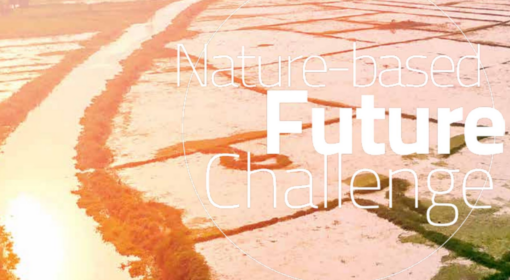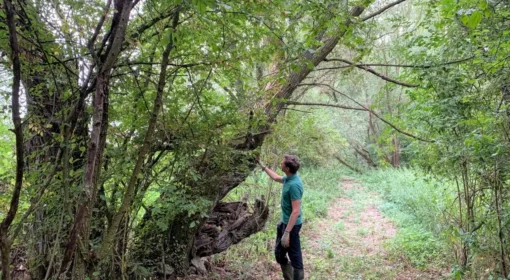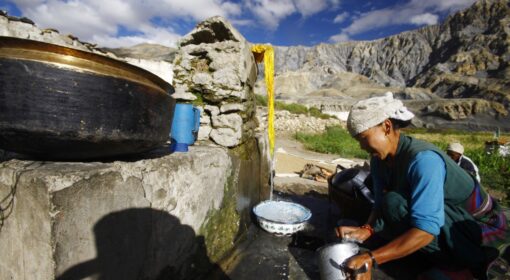Author: Harm ten Napel (Wageningen University & Research)
Students from all over the world are competing in the Nature-based Future Challenge, a unique opportunity to explore collaborations with nature to solve complex issues. Their case study: the Bangladesh River Delta. The student teams are each working towards innovative solutions to the region’s most pressing challenges: mitigating the effects of climate change, averting biodiversity loss and bettering the socio-economic situation. Taking natural processes and systems as their starting point, each team will propose a new narrative for the region.
Now, after the first selection moment, a top 20 of teams has emerged. ‘These are the teams that provided deep analysis of the various natural systems, proposed smart combinations of solutions, and presented them in an engaging narrative,’ says Bertram de Rooij, team leader Regional Development and Spatial Use, co-author of NL2120, and member of the selection commission. The twenty teams are working towards the second selection moment in April.
No quick wins or technical fixes
The Bangladesh River Delta struggles with both drought and floods, poor land and water management, issues in governance, and socio-economic challenges. ‘On top of that,’ says De Rooij, ‘the area is extremely densely populated.’ This complex web of challenges needs structural solutions, that can stand the test of the future. Nature-based solutions are not about quick wins or simple technical fixes, explains Cora van Oosten, member of the selection commission and director at research organisation CIFOR-ICRAF. ‘The Delta requires integrated action, and we’ve seen the best teams combine technical projects with social innovation and propositions for institutional change.’
“Scientists and local stakeholders’ different perspectives should come together on a nature-based solution”
De Rooij agrees. ‘Nature-based strategies, as I like to call them, call for a deep understanding of the natural systems but also consider cultural and social issues. For example, one team proposed floating farms, a solutions that elegantly deals with floods, provides food, and promotes biodiversity.’ On her part, Van Oosten was most impressed by visions that incorporated action at the local level and analyses that took into account more than just the coastal regions. ‘These teams tackle the problems at their source and they realize that systemic change starts locally.’
Nature-based solutions are integrated
‘In the seventies, polders were built on the coast of Bangladesh, with the support of the Dutch,’ tells De Rooij. ‘Now, about fifty years later, due to soil subsidence, more extreme river discharge and rising sea levels, the polders are like bathtubs with substantial waterlogging. The solution didn’t take enough of the environment, the natural systems, into account.’ It is a poignant example of the limits of a technical intervention. During the Challenge, the teams hope to move beyond this narrow perspective, to offer integrated solutions. To do so, Van Oosten advises them to collaborate: ‘The different perspectives of scientists and local stakeholders should come together on a nature-based solution.’
“The people involved need to believe in the future you’re envisioning — and become motivated to act.”
Beyond the content of their proposals, the student teams should also keep working on its form. As one of the minds behind the widely-supported vision for a nature-based future for the Netherlands, NL2120, De Rooij understands the importance of an engaging narrative. ‘Deep analysis, well-found concepts and smart solutions are important, but you also need to tell a story that brings your ideas together. The people involved need to believe in the future you envision—and become motivated to act. I call that: making people owners of their hope. Not just passively supportive, but actively engaged.’
On to the next selection moment
The twenty remaining teams are hard at work on fine-tuning and expanding their concepts. Asked what they should focus on, De Rooij saw two main lines of improvement. ‘Some teams have delivered very deep and cohesive analyses of the region already, but will need to envision more concrete solutions and strategies. Meanwhile, other teams have proposed interesting solutions, but will need to substantiate them with careful consideration of the natural and social systems around the Bangladesh River Delta.’
TheWaterChannel is proud to be media partner of the nature-based future challenge. Find out more about this student challenge on www.nbfchallenge.nl




